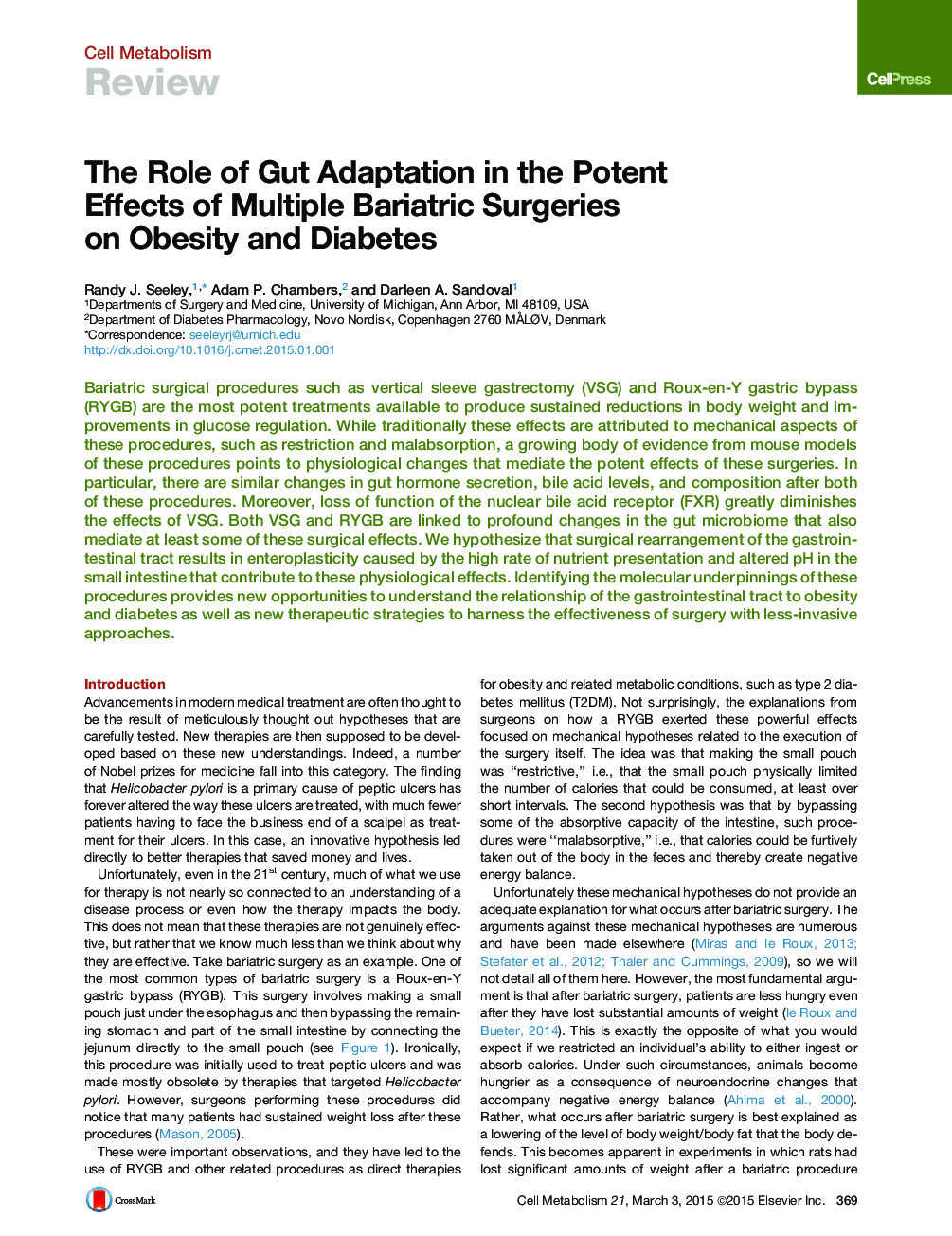| Article ID | Journal | Published Year | Pages | File Type |
|---|---|---|---|---|
| 2792384 | Cell Metabolism | 2015 | 10 Pages |
•Bariatric surgery is highly effective for treating obesity and diabetes•These surgeries alter gut function, resulting in effects on weight and metabolism•Gut adaptation contributes to the effects of these surgeries on energy balance
Bariatric surgical procedures such as vertical sleeve gastrectomy (VSG) and Roux-en-Y gastric bypass (RYGB) are the most potent treatments available to produce sustained reductions in body weight and improvements in glucose regulation. While traditionally these effects are attributed to mechanical aspects of these procedures, such as restriction and malabsorption, a growing body of evidence from mouse models of these procedures points to physiological changes that mediate the potent effects of these surgeries. In particular, there are similar changes in gut hormone secretion, bile acid levels, and composition after both of these procedures. Moreover, loss of function of the nuclear bile acid receptor (FXR) greatly diminishes the effects of VSG. Both VSG and RYGB are linked to profound changes in the gut microbiome that also mediate at least some of these surgical effects. We hypothesize that surgical rearrangement of the gastrointestinal tract results in enteroplasticity caused by the high rate of nutrient presentation and altered pH in the small intestine that contribute to these physiological effects. Identifying the molecular underpinnings of these procedures provides new opportunities to understand the relationship of the gastrointestinal tract to obesity and diabetes as well as new therapeutic strategies to harness the effectiveness of surgery with less-invasive approaches.
